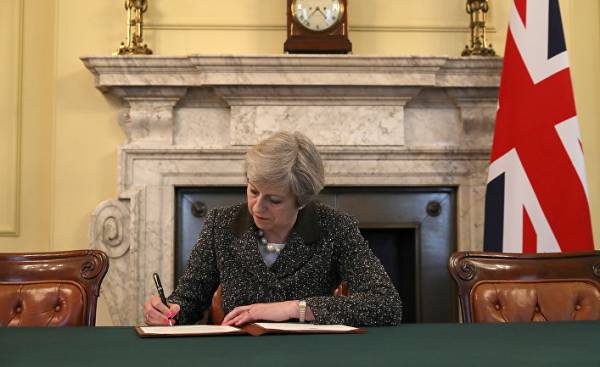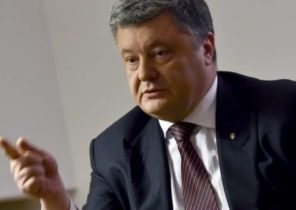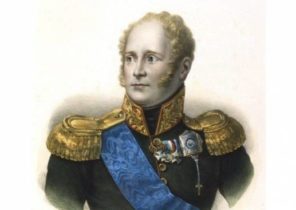
With the new elections, the British Prime Minister wants to provide a lot of support in the negotiations with the EU. Is there a danger that it will split the country even more?
Within a few years, democracy in the UK turns into a tactical game. First, to stay in power, made a bet of a Pro-European Prime Minister David Cameron, but the outcome of the referendum on the “broksita” was unexpected. Now risking it a little less Pro-European successor, Theresa may, she wants to hold new elections, to garner support for the once-spurned by her exit from the EU. To no member of the house of lords, none of the rebellious Prime Minister of Scotland, and, of course, no Pro-European party could not get in her way. She hoped that the strengthening of the powers will allow her to pay less attention to the individual interests in these complex negotiations.
An unexpected move, the Prime Minister is clear. Besides, it’s legal since she is not yet faced with the choice of the people. But this step can also be criticized, because here we are talking about a somewhat one-sided political calculation. Due to the lack of strong opposition, may can count on the fact that she again will be approved in office. She doesn’t need the election in 2020, right after she soils his hands with negotiations on the “broksita”. Better to hold them two years later, when the situation will probably calm down.
This tactical maneuver also fraught with risks. Mei is based solely on the attitudes of the political elite of the country. But many Britons who voted for withdrawal from the EU, want the Prime Minister fulfilled his promise “brakcet means brakcet”. Do not expect that they will show understanding of delays, and they can not be avoided in the case of elections.
This tactical maneuver also fraught with risks. Mei is based solely on the attitudes of the political elite of the country. But many Britons who voted for withdrawal from the EU, want the Prime Minister fulfilled his promise “brakcet means brakcet”. Do not expect that they will show understanding of delays, and they can not be avoided in the case of elections.
Perhaps Mae believes that the negative consequences of the “breccia” not yet felt, and it is convenient to hold elections before the appearance of possible conflicts due to secession from the EU. But the Prime Minister does not consider that already now, for example, in the business community is in a great scepticism about their chosen version of “hard breccia” (exit from the EU internal market). These fears are exacerbated, and will probably cause some conservative voters to switch to the Pro-European camp of the liberals. In addition, many Britons hope for a fix after losing, in their opinion, the referendum.
The head of the government admits that the population will again be interested in the controversial European issue. After the recent election campaign the tories in 2015 and the referendum campaign in 2016, in the elections of 2017 will also be the dominate theme of future cooperation with the EU. It is possible that these elections will lead to further division of the country.
There is a gap between nationalists, anti-globalization, radical xenophobes and traditionalists, on the one hand, and internationalist-minded, Pro-European forces which do not see any contradiction between the British tradition and European cooperation, on the other hand. There is also a split between England and Scotland, between the old and the young [generational].
Instead of unite the country before the talks about breaking up with 27 other governments, these elections will once again excite UK society. Who should seek a pragmatic way by which Britain could remain independent, but, at the same time, to maintain a partnership with the EU. Instead, the gap will be even deeper. This is noted in Brussels. And we should expect that a tactical game may lead to the fact that the negotiations that must be completed by 2019, the EU will maintain even tougher.
European Council President Donald Tusk compared the British way with the Hitchcock film in which the tension increases with every minute. The situation may seem quiet, especially everyone knows that the tension will have to be discharged. Today we can predict that Theresa may will win the election, her tactic might work. But it won’t simplify, except her.







